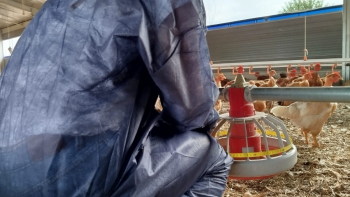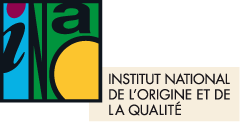90 years exhibition: INAO, an institution with an original style of governance
INAO is based on an original model of shared governance between the State and over 200 professionals, representing the agricultural and agri-food sectors. At the heart of this system, the Permanent Council is the Institute's central steering body, in charge of INAO's general policy, strategic priorities and budget.
AN INDEED GOVERNANCE MODEL, FROM THE ORIGIN
From its creation in 1935, the Comité National des Appellations d'Origine (CNAO), forerunner of INAO, operated according to a professional governance model, in consultation with the State. This system was based on the principle of professional decisions validated by the State. The initial composition of the CNAO included presidents of trade associations, as well as representatives of the Ministries of Agriculture, Finance and Justice. This governance founded the Institute's legitimacy to define and protect Appellations d'Origine Contrôlée (AOCs).
NATIONAL COMMITTEES, COLLECTIVE EXPERTISE AT THE SERVICE OF SIQO
Since the 1990s, INAO has been responsible for all SIQO (quality and origin identification signs), i.e. PDO, PGI, TSG, Label Rouge and Organic Farming. Current governance is based on 5 National Committees, divided by sector:
- The Comité National des AOP relatives aux vins et aux boissons alcoolisées, et des boissons spiritueuses The Comité National des IGP vins et cidresThe Comité National des AOP laitières, agroalimentaires et forestièresLe Comité National des IGP, STG et Labels RougesLe Comité National de l'Agriculture Biologique
They are each made up of around fifty members, the majority of whom are professionals (producers, processors, traders...), accompanied by qualified personalities (consumers, researchers) and government representatives (Ministry of Agriculture, Fraud, Customs...).
The mission of these governance bodies is to enrich and evolve the regulatory framework specific to SIQO, to examine requests for recognition of products under SIQO, and for modification of specifications, as well as the main orientations in terms of control.
THE CASE OF THE NATIONAL ORGANIC FARMING COMMITTEE
Organic Agriculture is governed by a set of specifications which, unlike other signs, are the same throughout the European Union. Bringing together all the organic farming families, the Comité National de l'Agriculture Biologique (CNAB) therefore enables the development of documents to interpret and explain the regulations to organic farmers within a reading guide, thus enabling harmonized implementation.

It can also suggest regulatory changes. It is also consulted on regulatory changes. Lastly, it organizes the dissemination of information (organic farming economic observatory, results of studies impacting on AB production conditions, etc.) to the main organic farming families.
.
THE CONSEIL DES AGRÉMENTS ET DES CONTRÔLES, GUARANTEEING THE IMPARTIALITY OF THE SYSTEM
Since 2007, INAO has organized a strict dissociation between SIQO management and control: control is now carried out by third-party control bodies (certification and inspection bodies) approved and supervised by INAO and meeting strict standards.
The main mission of the Conseil des Agréments et Contrôles is to guarantee the consistency, impartiality and effectiveness of control systems. It also ensures strict separation between the appraisal of recognition applications and control missions, in order to avoid any conflict of interest.
Exhibition summary: INAO, 90 years at the service of French agriculture
Download the exhibition panel
Exposition 90 ans INAO - Panneau 5
« L’INAO, UNE INSTITUTION À LA GOUVERNANCE ORIGINALE »
